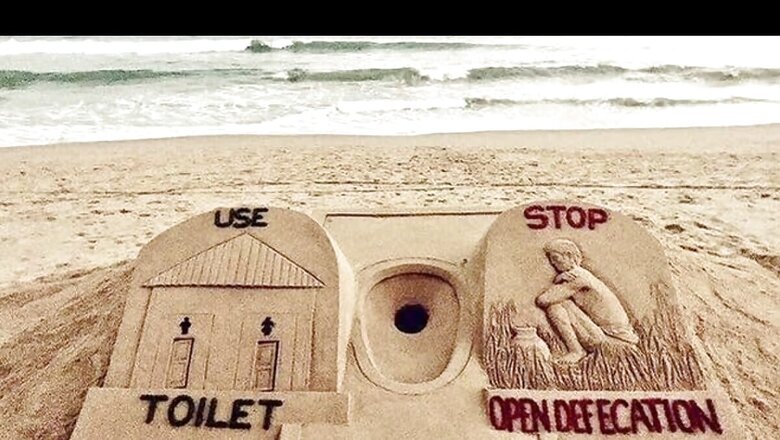
views
The Uttar Pradesh government, during the second phase of the Swachh Bharat Mission (Gramin), proudly announced that all of its 95,767 villages had attained the ODF Plus status, marking a remarkable 100 per cent success rate for the state.
An ODF Plus village is one that has retained its Open Defecation-Free (ODF) status and also implemented either solid or liquid waste management systems.
Uttar Pradesh, Kashmir and Goa are some of the states that have won praise from Prime Minister Narendra Modi for achieving Open Defecation Free status. The other top performing states/UTs which have achieved 100 per cent ODF-Plus village status are Andaman and Nicobar Islands, Dadra and Nagar Haveli, Gujarat, Himachal Pradesh, Karnataka, Kerala, Ladakh, Puducherry, Sikkim, Tamil Nadu, Telangana, and Tripura.
Over 4.43 lakh villages, which is 75 per cent of all Indian villages, have voluntarily proclaimed their ODF Plus status, marking a significant stride toward realising the objectives of Phase II of the Swachh Bharat Mission (Grameen) by 2024-25.
Major Victory for Swachh Bharat
This is a major victory for the Swachh Bharat Abhiyan and a significant milestone in the journey towards improved sanitation in India aimed at achieving a cleaner, greener and healthier India.
In nearly 10 years of the Swachh Bharat Mission, India has seen improved sanitary conditions, health benefits and a crucial behavioural change in village societies.
The ODF status improves tourism as a cleaner India is more attractive to tourists, and the campaign has contributed to a positive image of the country internationally. It has also encouraged domestic tourism. ODF villages have a better chance at attracting economic opportunities as well.
ODF Journey So Far
Nearly 10 years ago, PM Modi initiated the Swachh Bharat Mission (SBM) from Red Fort in New Delhi in what was a tribute to Mahatma Gandhi on his 150th birth anniversary by making India open defecation free.
SBM became the world’s-largest behavior change campaign, successfully achieving its goal on several fronts. On October 2, 2019, rural India achieved open defecation free status, a remarkable feat accomplished 11 years ahead of the United Nations’ SDG-6 target.
However, this achievement was not the culmination but rather the foundation for a more ambitious and essential mission — the pursuit of complete cleanliness or “sampoorn swachhata” in India’s villages.
Minister of State for Jal Shakti Prahlad Singh Patel has said that over 11 crore toilets and 2.23 lakh community sanitary complexes have been built across all states and UTs under the Swachh Bharat Mission-Grameen. These toilets have helped achieve ODF goals.
The government seeks to realise the vision of a “Sampoorn, Swachh, and Swasth Bharat” by the year 2024-25. Reaching over 4.4 lakh ODF Plus villages is a substantial accomplishment, given the technical nature of solid and liquid waste management, its relative novelty in rural India, and the fact that it addresses second-generation issues.
The provision of toilets has created the need to manage fecal waste effectively. The increased supply of potable water has led to the generation of more greywater, which requires treatment and reuse. Lifestyle changes and the use of packaged food products have also introduced the challenge of plastic waste in rural areas, necessitating effective management.
This is what the second phase of the Swachh Bharat Mission-Grameen (SBM-G) aims to achieve — the proper management of all forms of waste. This effort not only cleanses our villages but also creates opportunities for rural households to generate income and fosters new livelihood opportunities. Moreover, it aligns with the Sustainable Development Goals, reinforcing the government’s commitment to promote hygiene, safe sanitation, and enhance the quality of life for all its citizens.
Challenges Ahead
As a movement based on behavioural attitudes, SBM faces significant challenges, one being the sustenance of the Open Defecation Free status in villages. Where toilet infrastructure and disposal systems have been set up widely, their use and maintenance is an everyday affair which hinges on water availability and most of all, behavioural changes in the society. Without active public participation and cooperation, such a campaign would not be successful in the long term.
The gains so far are encouraging, with the government actively nudging for improvement, but eventually, open defecation must permanently become a thing of the past so that village societies can move on and work towards achieving greater goals.
















Comments
0 comment